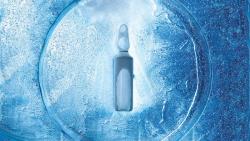
OR WAIT null SECS
- About Us
- Advertise
- Contact Us
- Editorial Info
- Editorial Contacts
- Editorial Advisory Board
- Do Not Sell My Personal Information
- Privacy Policy
- Terms and Conditions
© 2024 MJH Life Sciences™ and Pharmaceutical Technology. All rights reserved.
Drug Approval Trends Don't Extend to CMOs
Approvals of new drugs are on an upward swing, but only a few CMOs are benefiting.
New drug approvals by FDA continued their upward advance in 2012, but CMOs didn't benefit much from the improvement. The data suggest that the market share of dose CMOs may have peaked.
Jim Miller
In 2012, FDA's Center for Drug Evaluation and Research (CDER), which approves new small-molecule and biologic therapeutic drugs, approved 101 new drug applications (NDAs). This level was on par with the 102 new drugs approved in 2011 and continues the recovery in NDA approvals that started in 2008 (see Figure 1).
Figure 1: New drug application (NDA) approvals, 2006-2012. NME is new molecular entity. (ALL FIGURES COURTESY OF AUTHOR)
The composition of the new approvals was particularly noteworthy. Of the 101 NDA approvals, 39 were for new molecular entities (NMEs) (i.e., drugs containing an API that was approved for the first time). The NMEs included 10 biologics and 28 small molecule drugs. This level was the most NME approvals in more than seven years.
There were 62 non-NME drugs approved (i.e., drugs containing a previously approved API). Of those, 47 were approved via the 505(b)(2) route, which provides for a simplified approval process for new formulations of previously approved drugs. The 505(b)(2) process is particularly popular with specialty pharmaceutical and generics-drug companies because it is a lower-cost and lower-risk process for developing new drugs than developing NMEs.
Outsourcing trends remain unchanged
While the approvals trend grew stronger, the propensity for outsourcing the manufacturing of these new drugs remained flat. Overall, dose manufacturing was outsourced for 42% of the NDAs approved in 2012, which was consistent with the 41% average for the previous six-year period (see Figure 2). Both NMEs and non-NMEs were outsourced at the 42% rate.
Figure 2: Share of new drug application (NDA) approvals outsourced, 2006-2012. NME is new molecular entity.
The propensity to outsource was largely a function of the nature of the approval and the size of the company getting the approval. Global and mid-size biopharma companies were more likely to outsource their non-NMEs than their NMEs; the global biopharma companies did not outsource dose manufacturing for any of their biologics approvals, but did outsource some of their small-molecule approvals. Small companies outsourced dose manufacture for most of their new approvals, both NME and non-NME, including 100% of their biologic approvals. As one would expect, generic-drug companies outsourced few of their new approvals.
A total of 28 different dose CMOs benefited from new product approvals in 2012. Only six had more than one approval, with Catalent (six new approvals) and Patheon (four new approvals) leading the way.
PharmSource analysis of eight years of FDA approvals data suggests that the acceptance of the CMO business model and its penetration of the biopharmaceutical industry have remained relatively unchanged throughout most of the past decade. NME dose-form outsourcing has remained relatively constant for the past seven years as the industry is governed by two basic truths: smaller companies have a strong tendency to outsource while global biopharma companies have a strong preference to keep products in-house.
Outsourcing strategies
Among global bio/pharma companies, attitudes and strategies regarding contract manufacturing appear to be well entrenched. Out of the 22 global biopharma companies, nine companies—including Abbott/Abbvie, Astellas, Bayer, and Novo Nordisk—outsourced none of their new NDA approvals during the 2005–2012 period. On the positive side, four companies have outsourced 50% or more of their NDA approvals received during the past eight years, and another four have outsourced 30% or more of their approvals. Unfortunately, six of the eight companies have averaged less than one approval per year over the period.
The data on outsourcing of recent NDA approvals must be analyzed carefully because the majority of the contracts for these products were signed three-to-five years ago (i.e., in 2007–2009). Given the long cycles between contract signings and product approvals, strategy changes triggered by the 2008-2009 financial crisis and the patent cliff probably are not yet reflected in the manufacturing arrangements of recently approved products.
Nevertheless, it does appear that outsourcing's share of dose manufacturing is stuck in the 40–45% range, and further penetration may be difficult to achieve. Global biopharmaceutical companies have been shrinking their manufacturing networks and shrinking their product pipelines, but they are investing in captive biologics manufacturing capacity and building new manufacturing facilities to serve the growing emerging markets. Among smaller companies, those companies that develop new biologics may be unable to afford their own sterile manufacturing facilities, but small companies developing solid-dose products face a much lower capital expenditure for owning captive capacity.
CMO executives like to proclaim that outsourcing is growing, and so long as the number of new product approvals continues to rise, they will be right. But just as a rising tide lifts all boats, a receding tide can leave many of them beached. The large number of CMOs receiving approvals again highlights the highly fragmented nature of the sector; so many CMOs have received just a few or no approvals that one wonders how they can stay in business.
The battle for market share among CMOs is getting intense, and we sense that customers are able to drive more favorable terms, including lower prices and other concessions. A number of major CMOs have accepted this reality by turning their efforts increasingly to proprietary products. We continue to believe that the CMO industry is headed for a period of consolidation.
Jim Miller is president of PharmSource Information Services, Inc., and publisher of Bio/Pharmaceutical Outsourcing Report, tel. 703.383.4903, Twitter@JimPharmSource, info@pharmsource.com, www.pharmsource.com.



